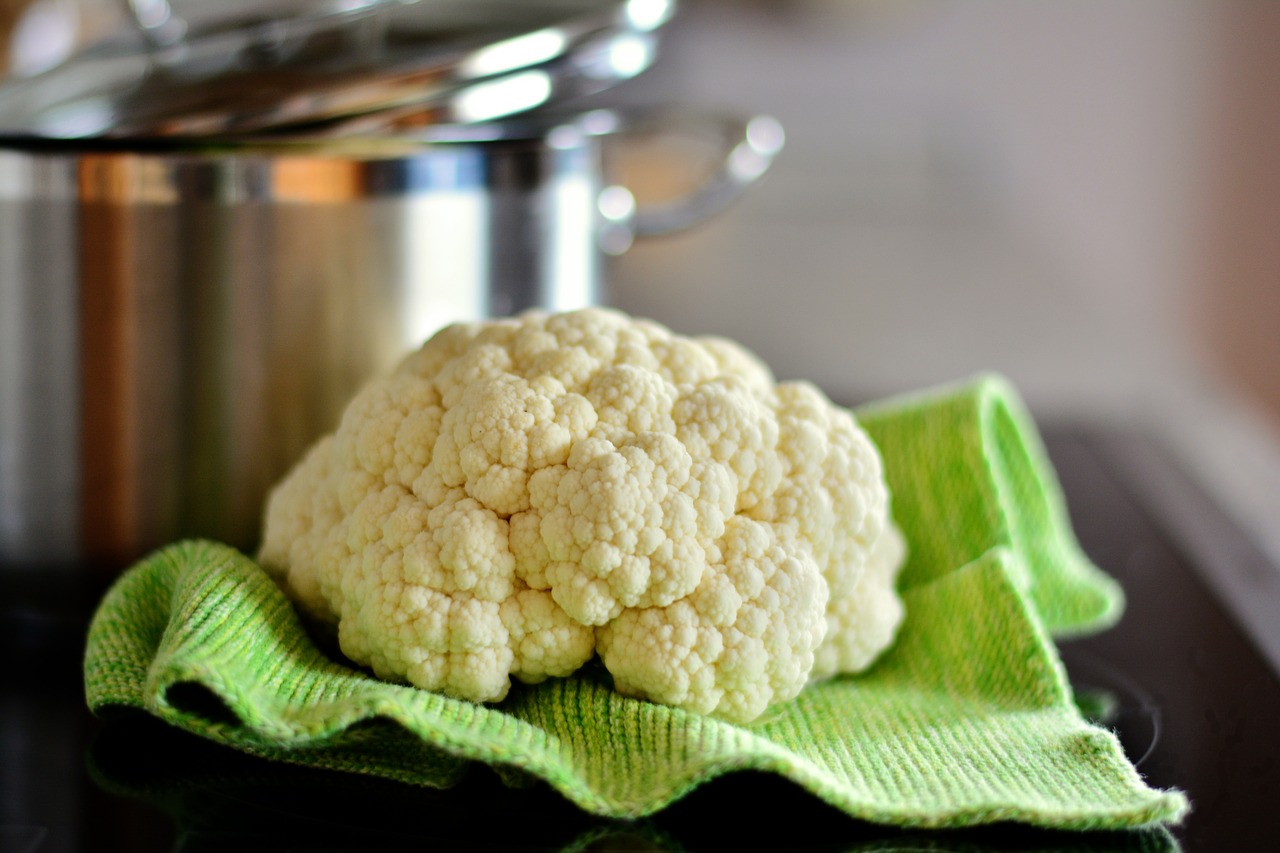
Medical Mysteries That Have Baffled The World
Once in a while, medical practitioners come across certain medical cases that have left them completely dumbfounded.
These are the rarest of the rare, with hardly an expert to say they have the experience in managing them. I found for you some cases that have left many a mind confused and doctor baffled.
1. The Child Who Cried Stones
Yes, you read that right.
Believe it or not, there was a girl in Yemen whose father once noticed her crying stones. Yemeni father Mohammad Saleh Al Jaharani was astonished when his eight-year-old daughter Saadia started crying tiny stones instead of tears.
So far, doctors have not been able to figure out what the cause for this is. Unsurprisingly, people in the village believe the girl is under some sort of spell. Apparently, she could cry out around 100 stones a day.
2. The Girl Who Did Not Age
Brooke Greenberg was a girl with a difference.
She was 20 years old, still had her baby teeth and her bones were still as thin as a 10-year-old. Physically, she was no taller than a 2 year old, and had a similar mental capacity as well.
The only things that grew normally included her hair and fingernails. Clinical studies of her brain found it to be highly underdeveloped. Sadly, she passed away at the tender age of 20 yrs.
A diagnosis was never made.
3. Blindness Miraculously Restored
Lisa Reid of New Zealand is probably one of the luckiest persons on planet Earth.
Having lost her vision at the age of 11 years, she was prepared to lead a life lead by darkness and just by smell and touch. When she was 24 years, she accidentally bumped her head.
Wonder of wonders, she regained her sight suddenly!
Her initial loss of vision was believed to be due to a tumor pressing on the optic nerve. After bumping her head when bending down to pet her dog, Lisa went to bed with just a headache. She woke up with perfect vision.
A bit like Spiderman waking up with his newfound powers.
4. The Girl Who Felt No Pain
Meet Gabby Gingras. A little girl who poked her eye out and maimed 3 of her fingers.
Why, you ask?
Well, she can’t feel any pain whatsoever. She would bang her head against the sharp edge of the table and behave as though nothing had happened. She suffers from hereditary sensory autonomic neuropathy – a condition where the nerves responsible for sensation do not work. At one point in her life, the poor girl had broken her jaw, and no one had noticed, not even her.
5. The Mysterious Case of Gloria Ramirez
I save the most baffling one for last.
On Feb 19th, 1994, Gloria Ramirez was admitted to Riverside Hospital in the USA. She had a history of cervical cancer and was brought to the emergency department with breathlessness and a fast heart rate.
When she arrived, doctors noted her skin to have an oily sheen, and a fruity garlic odor was emanating from her mouth. Blood samples that were taken smelt like ammonia.
A short while later, the nurse who drew the blood fainted. A little while after, the doctor treating her started vomiting, following which even she fainted. A therapist on the ward also fainted shortly after.
Within a matter of minutes, 23 people fell ill and 5 required hospitalization.
All the patients in the hospital were moved out to the parking lot. Shortly after, Mrs Ramirez went into cardiac arrest and died despite resuscitation attempts.
So far, no clear cause has been found out, though investigators believe that her body might have been covered with dimethyl sulphur, a compound used to relieve pain. The temperature drop when Mrs Ramirez was moved from her home to the hospital might have converted it into a volatile gas, leading to the symptoms.
Baffling, right?

Why Are We The Way We Are?
Confused? Allow me to explain.
The human body is made of trillions of cells. Each of these cells contains within them proteins that define how we look and appear to others.
These proteins are called ‘genes’, often called DNA in the medical world.
There are literally billions and billions of copies of DNA in our body, and DNA is unique to that individual. DNA, or De-oxyribo Nucleic Acid, is inherited from our parents and is responsible for our genetic makeup.
99.5% of the parent’s DNA is shared by the children.
This would explain why we share features similar to our parents (interestingly around 40% of the DNA we have is similar to the cabbage!).
Research conducted in Oxford University has shown that DNA could dictate if we are right or left handed. Clinical conditions such as Down syndrome, schizophrenia and other disorders are all linked to faulty DNA.
In the recent years, much attention is being paid to whether our DNA has something to do with our behavior. While the jury is still out on this one, the link to behavior is now being explored and used in the courts of law in the US .
It would be interesting to see what transpires regarding this theory, and how it might be twisted in the future to win court battles. Until then, let us safely assume that our behavior is dictated by influence from family, society and our peers.
In a sense, DNA dictates how we appear to others – the color of our hair, our eyes and our height. How we behave is completely up to us.

Alcohol and the Heart – Let’s Stop It In Its Tracks!
In the recent years, there has been a great surge in the quantity of alcohol consumed by people across India. With easy availability of spirits and wines not just from India but also from the Western world, partaking in this on a regular basis seems to have become the norm for many.
Many of us are aware that alcohol can damage the liver, but did you know that alcohol intake on a regular basis can damage the heart? You may be shocked to hear that alcohol contributes to the development of over 60 different diseases in our body, and heart disease is one of them.
So what are the effects of alcohol on the heart? Here we take a brief look.
The Bad Effects Of Alcohol
Studies have shown that consuming alcoholic beverages on a regular basis can increase the levels of certain kinds of fats in the body. These fats are called ‘triglycerides’.
Recent studies published in reputed cardiology journals have shown that elevated levels of triglycerides may be associated with an increased risk of developing coronary heart disease.
Alcohol is very high in calories, with 1 gm of alcohol providing 7 calories. Large amounts consumed regularly can increase the level of body fat, and this in turn leads to the development of obesity.
You may have seen the abdomen of people who drink alcohol – they tend to be quite large and are often called ‘beer bellies’. The problem with having an increased amount of body fat (especially around the waist) is that it can increase the chances of developing high blood pressure and diabetes.
People who drink alcohol also tend to smoke and this only further increases the risk of heart problems.
Alcohol can also weaken the heart muscle. This condition is called alcoholic cardiomyopathy.
In this condition, the heart muscle is unable to pump blood effectively to the various vital organs and muscles, leading to organ failure and extreme weakness. Breathlessness and swelling in the legs are common symptoms.
Patients who develop alcoholic cardiomyopathy require many medications to support their heart. Their outcome is poor and the survival rate is low, especially if the person does not quit alcohol.
Alcohol can also increase the heart rate, and can make the heart beat rather erratically. The erratic heartbeat tends to be irregular, and is usually in a rhythm that is called atrial fibrillation.
Atrial fibrillation that begins after heavy intake of alcohol is sometimes called ‘holiday heart syndrome’, as it is often seen in people who binge drink when on holiday. Atrial fibrillation can lead to weakening of the heart muscle if left untreated.
Finally, alcohol can increase the risk of developing a stroke. The risk factors for stroke are the same as heart disease, and include high blood pressure, diabetes and smoking. All these 3 are seen in individuals who drink regularly.
Is There A Bright Side?
As a matter of fact there is. Consuming alcohol in moderation can have certain benefits on the heart, and this has mostly been seen with red wine. Red wine has antioxidants, flavonoids and a compound called resveratrol in it that can protect the heart from the development of heart disease. However, these benefits can only be seen in individuals over 45 years who drink only one drink a day (around 2 units).
What Can I Do?
If you really wish to partake in alcohol, then make sure you do so in moderation. Of course, avoidance is the best strategy, but if you like to drink regularly, then do your best to make sure you have at least 2 ‘alcohol free’ days a week.
Just bear in mind that 10 ml of spirits is one unit and one glass of beer is around 3 units. Keep a tab of what you drink, and you can keep your heart healthy and enjoy life as well!
My recommendation – Avoid it as much as you can!

How Friendship Can Boost Your Health
There has been much talk about ‘Vitamin F’ in recent years. ‘F’ stands for friendship, and believe it or not having friends can be very good for health.
In a study conducted in an Australian University, older individuals who had more friends lived 22% longer than those of the same age with fewer friends. Having the right friends can, in fact, reduce your chances of developing heart disease and other related illnesses. How you may ask?
Well, with the right friends, you are less likely to smoke or drink heavily. Those with responsible friends tend to be more responsible themselves. Those with friends who exercise regularly also tend to exercise along with them.
It is human nature to mimic the actions of those we care about or admire.
Friendship can make a world of difference to our overall health. A paper published in the reputed journal Lancet in 1989 by Professor Speigel from Stanford University showed that those women with breast cancer that were a part of a support group lived twice as longer than those who went through the illness alone.
Emotional support is essential in times of health crisis, and this may be insufficient from a family member alone. It is sometimes important to relate to other individuals who have been through a similar experience, and support groups are of help.
Add to the above, friendships can help reduce stress. Just a quick chat with a friend over a cup of coffee can make a world of difference to one’s mental health.
People with more friends have a lower incidence of cardiovascular disease. However, choose your friends carefully. Some friends can be a source of stress, especially if their company arouses conflicting emotions and feelings. An abrupt comment from a friend can hurt more than a stranger.
But this should not stop one from making new friends and building new bonds. Some researchers have stated that being unfriendly has a mortality risk that is equivalent to that of smoking.
Be social – make sure you have a close group of friends you trust and love. Keep them close, and spend time with them. You most certainly will live longer!

Arrowroot – Health Benefits in Brief – Dr Vivek Baliga
The other day, my son asked me for some biscuits to eat.
When I rummaged through the cupboard, I found a packet of biscuits made from arrowroot. In my naivety, I asked my wife what this was. She told me that it was one of the healthiest plants around. I decided to investigate it further, and here is what I found.
Arrowroot is actually a starch that is obtained from a plant called Maranta arundinacea.
It has been used as a thickener in certain foods! The primary health benefit that it bears is its impact on the digestive system. Arrowroot has been around for centuries as a digestive aid. More recent studies have found it to be effective in treating diarrhea and managing irritable bowel syndrome. In this condition, it not just stops the loose stools; it also helps reduce abdominal pain.
The good news is that it is safe for infants.
In women who constantly suffer from urinary infections, arrowroot is a useful home remedy. It is able to reduce inflammation within the urinary bladder, allowing for better urinary flow.
In fact, it is called arrowroot as it was previously used to heal poisonous arrow wounds. In addition to its anti-infective properties, arrowroot has immune-boosting properties. It can also fight bad bacteria such as salmonella that is present in food and prevent gastroenteritis.
Got painful gums? Apply arrowroot directly onto the gums to give yourself soothing relief.
Keep a lookout for arrowroot powder. Biscuits may not be the best way to ensure to partake in it!
Instead, you could mix the powder into some juice and consume it immediately. If you love to bake, you could add it to your cakes and pastries to give it a firmer texture.
Arrowroot can be consumed if you are vegan. Source yours today and make it a part of your daily diet!

Health Benefits Of Mushrooms – Dr Vivek Baliga
Have you ever wondered about the health benefits of mushrooms?
People have a ‘love it or hate it’ relationship with mushrooms. These oddly shaped and funny smelling fungi are surprisingly rich in rare nutrients that are essential for staying healthy. Let’s take a look.
There are different types of mushrooms available, and only a few are edible. Only a handful of varieties are available in India, and the rarer ones that are imported are fairly expensive.
Most mushrooms have varying quantities of protein and fiber. However, they are also rich in B vitamins, that are essential in keeping our vital structures including the nerves healthy.
One particular element that mushrooms are rich in is selenium. This mineral has powerful anti-oxidant properties, and can help boost your immunity dramatically. Interestingly, white mushrooms are rich in vitamin D, a vitamin that is generally synthesized by the body on exposure to sunlight.
Besides this, there appears to be some evidence that mushrooms may have anti-cancer properties. They may help boost memory and prevent conditions such as Alzheimer’s disease.
Mushrooms also seem to have cardiac protection effects. They are believed to help lower cholesterol, which is a common risk factor for heart attacks and strokes. This might just be one of the best health benefits of mushrooms.
However, the reduction may just be modest at most, so don’t rely on these smelly fungi to lower your bad cholesterol levels.
When cooking mushrooms, keep the cooking times short. Overcooking them can rid them of their nutritional properties. Of course, do bear in mind that mushrooms can be eaten raw, but make sure you clean them properly before you do so.
So, go on…. have yourself some mushrooms!

Masked Hypertension And It’s Perils
You will have heard about hypertension or high blood pressure, but have you heard of ‘masked’ hypertension?
Before you get your superhero mode going, let me tell you that masked hypertension is a serious concern to both doctors and patients.
You will know that some patients who visit a doctor have high blood pressure in their clinic.
This is called ‘white coat hypertension’.
There is however a condition where the blood pressure is normal in the clinic but high at home.
This is called masked hypertension and is often missed.
Here are some facts you need to know about masked hypertension –
- 13% of the population of Karnataka (my state) have masked hypertension, according to the India Heart Study.
- Hypertension is a silent killer, and masked hypertension is possibly its worst kind.
- Patients with masked hypertension are relatively younger and are male.
- Masked hypertension is associated with an increased risk of heart disease-related complications such as heart attacks and stroke.
- The best way to diagnose masked hypertension is to undergo an ambulatory blood pressure monitoring test.
- Treating patients with this condition can prevent complications and prolong life.
Hypertension is a problem, and data in India shows that a lot of patients have this form of hidden hypertension.
I was recently a coordinator of a national study that looked at this aspect of blood pressure. Surprisingly, this found nearly 13% of the population in Karnataka state (where I hail from) have masked hypertension.
I will be discussing different forms of hypertension in a guide soon!

Refreshing Benefits Of Lemongrass Tea
I recently had the pleasure of traveling to Thailand with my family. Apart from the sweltering heat of the summer months, I had the privilege of enjoying local cuisine, especially street food. I have been a fan of Thai food for years, and the experience I had was certainly a memorable
one.
One spice I noted that they add in almost everything was lemongrass. Apart from its pungent smell and remarkable taste, lemongrass has a number of health benefits, especially as a tea.
Lemongrass tea is a common drink available in Bangkok. The compounds released by lemongrass into warm water include chlorogenic acid, isoorientin, and swertiajaponin – 3 elements that have powerful anti-inflammatory properties and the capability of fighting free radicals that harm our vital organs.
In one study, drinking lemongrass tea was found to reduce levels of anxiety and stress. The extract of lemongrass has been shown in some animal studies to lower cholesterol levels.
It may help boost immunity, particularly in fighting fungal infections. Chewing on lemongrass stalks is believed to improve dental health and keep the mouth clean. This is because the compounds can inhibit bacterial overgrowth in the mouth. Regular consumption of lemongrass tea can increase your hemoglobin levels and can be used as a treatment for anemia.
Lemongrass may have a ‘diuretic effect’, meaning it pushes the kidneys to produce more urine.
Lemongrass is readily available in India, so why not give lemongrass tea a go today?

Cauliflower – Amazing Health Benefits
As a child, I wasn’t really a fan of cauliflower. The whole shape and texture were a real put off.
However, over the years, probably due to lack of choice, I have begun to enjoy this veggie thoroughly, and I am glad I have. It has so many health benefits, and I thought I would list them here today.
Firstly, cauliflower is packed with nutrients. Not only does it contain a good quantity of fibre; it also is
rich in minerals such as potassium, manganese and phosphorus. It is a good source of B complex vitamins and folic acid as well.
One serving of cauliflower contains around 3 grams of fibre, which can help maintain healthy bowels and a healthy heart. The fibre also helps lower cholesterol and has a role in cancer prevention as well.
As with most vegetables, cauliflower is a good source of powerful antioxidants – a group of compounds that can fight harmful free radicals that are responsible for numerous medical conditions and even premature ageing.
Given that over 90% of cauliflower is water, it becomes a low calorie yet highly nutritious food source that can help you lose weight.
Most importantly, cauliflower has choline – a nutrient that is essential in synthesis of DNA. Choline has a role in maintaining healthy brain function and has been found to help lower the risk of heart disease, liver disease and even memory loss and Alzheimer’s disease.
Make sure you get your weekly portion of cauliflower as a part of your healthy diet!
